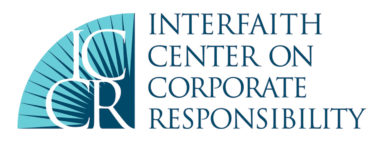ABHMS is lead filer of proposal that results in Tyson Foods agreeing to study how its policies may discriminate against communities of color
 VALLEY FORGE, PA (ABNS 12/13/21)—As a result of successful negotiations with Tyson Foods, American Baptist Home Mission Societies (ABHMS) was joined by other shareholders of Tyson and members of the Interfaith Center on Corporate Responsibility (ICCR) in withdrawing a proposal intended for the 2022 company proxy requesting a racial equity audit. ABHMS was lead filer in originally proposing the racial equity audit.
VALLEY FORGE, PA (ABNS 12/13/21)—As a result of successful negotiations with Tyson Foods, American Baptist Home Mission Societies (ABHMS) was joined by other shareholders of Tyson and members of the Interfaith Center on Corporate Responsibility (ICCR) in withdrawing a proposal intended for the 2022 company proxy requesting a racial equity audit. ABHMS was lead filer in originally proposing the racial equity audit.
The proposal requested that “the board of directors commission publicly disclose the findings of an independent racial equity audit analyzing if, and how, Tyson’s policies and practices discriminate against or disparately impact communities of color. The report should clearly identify and recommend steps to eliminate business activities that further systemic racism, threaten civil rights or present barriers to diversity, equity and inclusion. Input from impacted workers, customers, community members or other relevant stakeholders should inform the audit and report.”
Shareholders said Tyson agreed to all key terms of the proposal, specifically:
- The racial equity audit will be conducted by an independent third party;
- The report will be made public;
- There is a one-year reporting timeline;
- It will be a consultative process, including interviews with impacted stakeholders as well as investor feedback; and
- The company committed to further dialogue with ICCR members, referencing value in collaborative engagement with faith-based investors.
The proposal was filed by 17 faith-based investor members of ICCR. Tyson has been a company of concern for ICCR members for several years with prior resolutions focused on the water impacts of Tyson’s operations as well as human rights risks, specifically potential worker rights abuses in Tyson’s poultry plants. As widely reported in the press, COVID-19 highlighted the health risks frontline meat processing workers face, and Tyson was one of several companies in receipt of an investor statement calling for enhanced protections for its workers. Investors say the disparate impacts of COVID-19 on workers of color was a core motivation for their request for the audit.
“Tyson has a history of business practices that further racial inequity, including multiple allegations of racial discrimination and harassment at its plants,” said David L. Moore Jr., CFA, director of investments for lead filer ABHMS, a founding member of ICCR. “These allegations represent very real reputational and legal risks for the company, and we applaud its decision to conduct an audit that would help Tyson mitigate them and avoid adverse impacts on communities of color.”
According to the proposal, a coalition of worker and food justice groups filed an administrative complaint with the U.S. Department of Agriculture alleging that the company’s failure to prevent coronavirus outbreaks among largely Black and Latinx workers amounted to racial discrimination in violation of Title VI of the Civil Rights Act of 1964. Racial harassment has also been reported in Tyson plants. In April 2021, two former employees of the Tyson Farms chicken plant in Wilkesboro, N.C.—who were repeatedly called racial slurs by a manager over a period of four years—accused Tyson of violating the Civil Rights Act.
Tyson’s workforce is diverse; however, racial disparities exist between hourly and salaried employees. More than 70 percent of Tyson’s salaried employees are white, suggesting that workers of color may not have equitable opportunities to advance to the better paying, more senior-level positions within the company. Racial diversity on Tyson’s board is also limited, with only two out of 14 directorships held by people of color.
Celebrating its 50th year, ICCR is the pioneer coalition of shareholder advocates who view the management of their investments as a catalyst for social change. Its 300-member organizations comprise faith communities, socially responsible asset managers, unions, pensions, NGOs and other socially responsible investors with combined assets of over $4 trillion. ICCR members engage hundreds of corporations annually in an effort to foster greater corporate accountability.
American Baptist Home Mission Societies partners with American Baptists to promote Christian faith, cultivate Christ-centered leaders and disciples, and bring healing and transformation to communities across the United States and Puerto Rico.
American Baptist Churches USA is one of the most diverse Christian denominations today, with approximately 5,000 congregations comprised of 1.3 million members, across the United States and Puerto Rico, all engaged in God’s mission around the world.

